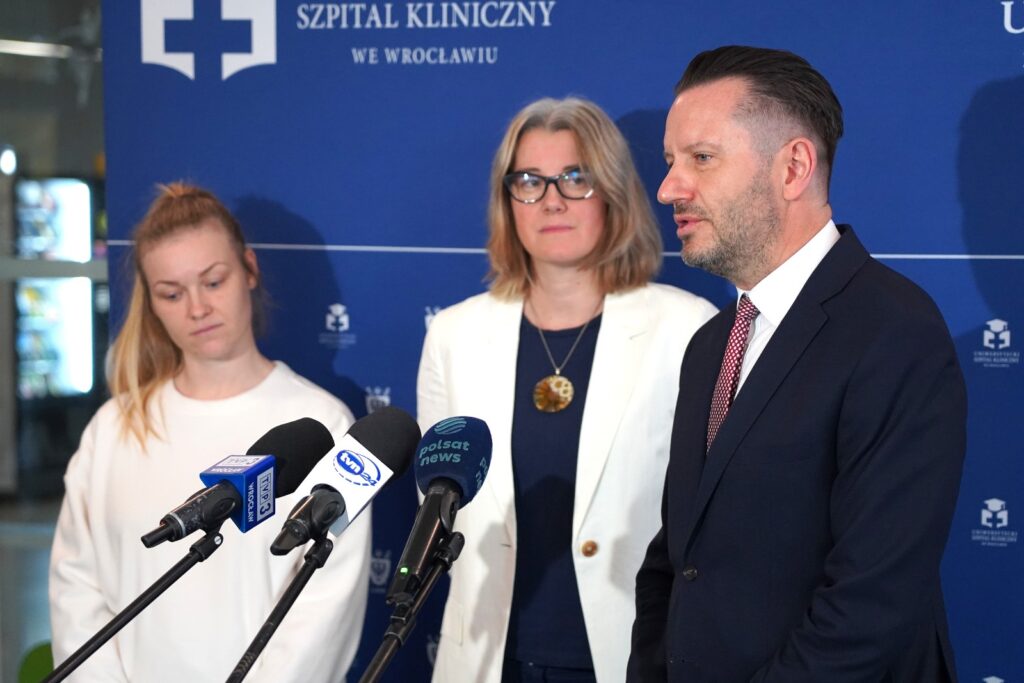In October 2024, the University Clinical Hospital in Wroclaw performed Poland’s first gene therapy in a child with severe combined immunodeficiency (SCID) caused by a RAG1 mutation. The treatment, conducted in cooperation with Leiden University Medical Center (LUMC), marked a milestone for Polish medicine.
Today, one-year-old Olaf is developing normally, and tests confirm that his immune system works fully on its own.
“Wrocław has become a place where the most advanced gene therapies are available to the youngest patients,” says Dr Maciej Kamiński, Deputy Medical Director at the University Clinical Hospital in Wroclaw. “Our goal is to build a centre that not only treats but also shapes the future of paediatric medicine in this region.”

According to Prof. Krzysztof Kałwak, Head of the Department of Paediatric Bone Marrow Transplantation, Olaf was the fourth patient worldwide to receive this therapy. “He no longer requires intensive infection prophylaxis. This achievement motivates us to expand gene therapy programmes in Poland.”
International collaboration and long-term care
The procedure was part of the RECOMB project, funded by the European Commission and led by LUMC. University Clinical Hospital in Wroclaw is the only Polish partner in the consortium. All treated patients are monitored for at least 15 years.
The Wroclaw team is now preparing another child for qualification within RECOMB and developing gene therapies for additional immune deficiencies and metabolic diseases. The Clinic is also working toward accreditation as a Quality Treatment Center for gene therapy in metachromatic leukodystrophy.
Expanding advanced therapies
Gene therapy introduces a healthy copy of the defective gene into a patient’s own haematopoietic stem cells, avoiding donor transplantation.
University Clinical Hospital in Wroclaw is a national leader in advanced cellular therapies. Since 2020, the centre has performed 47 CAR-T treatments in children and continues to expand its portfolio of innovative genetic and cellular methods.
“What once belonged to the future is happening today in our laboratories,” says Prof. Kałwak. “This is how science and collaboration change children’s lives.”